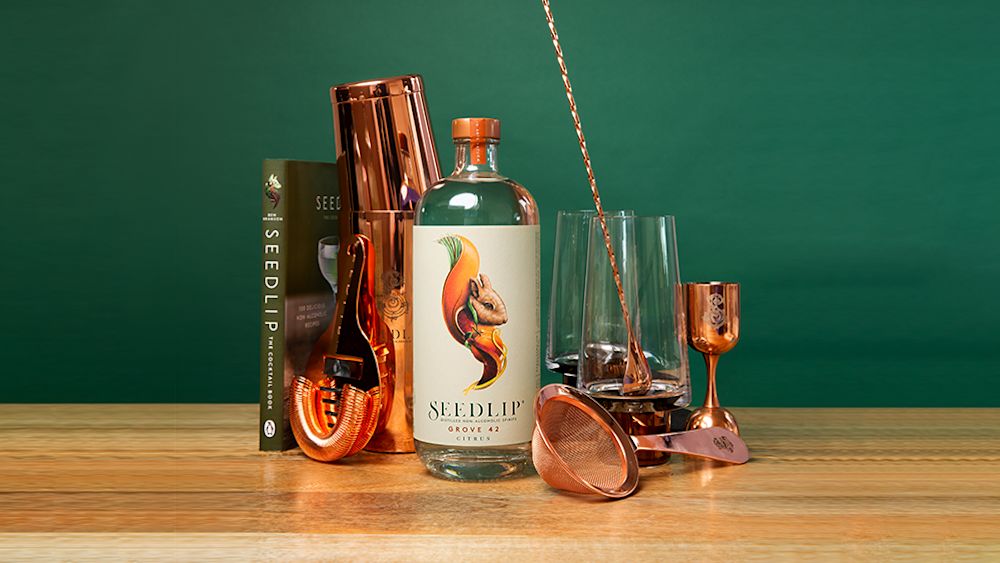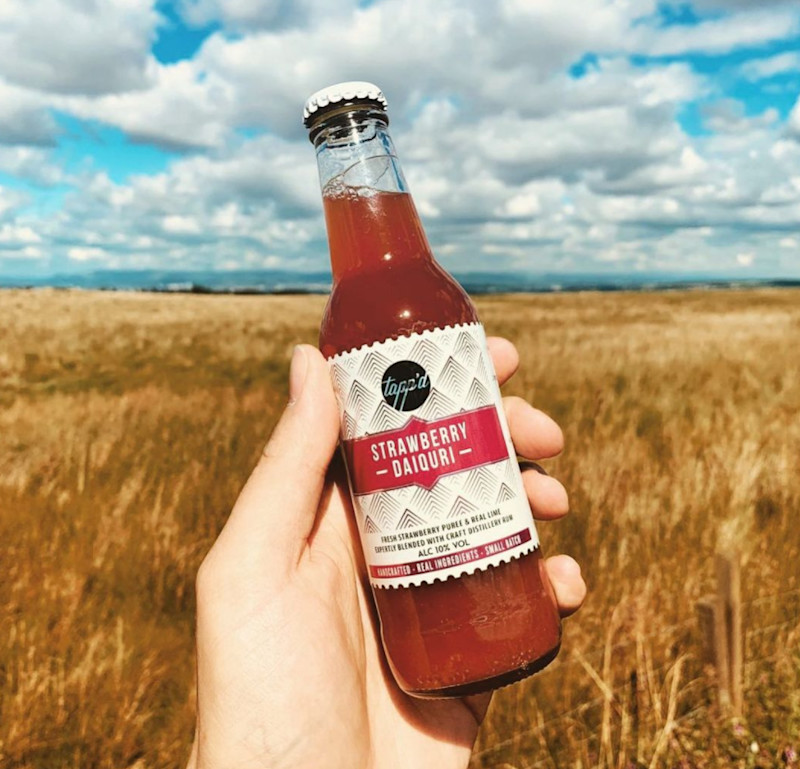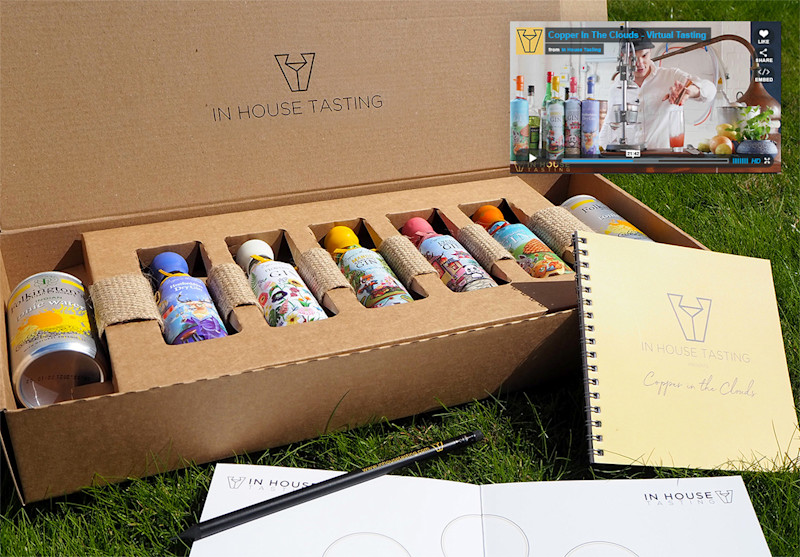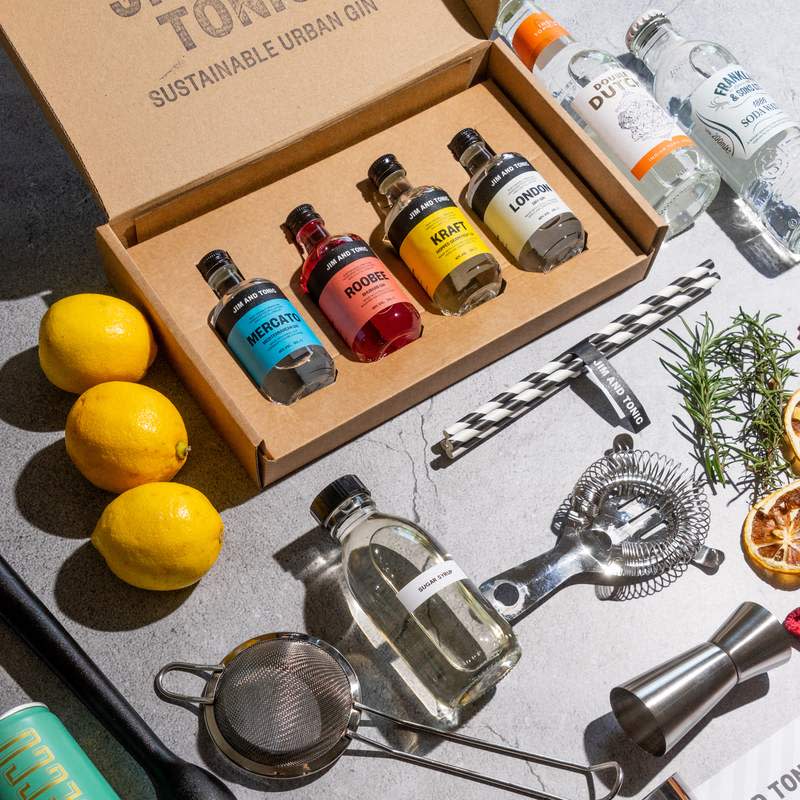The Cocktail Surge: How Britain's Largest Booze Businesses are Staying in Good Spirits
British booze companies are staying in good spirits as the pandemic changes the public’s drinking habits, with more customers exploring “home cocktail kits” adding a twist on classic cocktails to cater for their own preferences.

The pandemic has radically altered the British public’s drinking habits. According to the Wine and Spirit Trade Association’s (WSTA), beer and wine sales fell by 10% and 5% respectively this year, while Alcohol Change UK found that a month after the first lockdown in March, 21% of adults who drink alcohol were drinking more often, whereas 35% of those who drink have lowered the frequency or stopped altogether. Another study by the Portman Group shows 65% of Brits were drinking the same, less, or not at all during lockdown. Of the 35% drinking more, 28% are only drinking “a little bit more”. Simply put - there is no clear trend.
As a result, alcohol producers have found it hard to navigate the murky waters that are its consumers’ evolving habits. The Bacardi 2021 Cocktail Trends Report forecasts that, beyond the flavours and types of alcohol shaping the new world of drinking, availability is vital as well. According to the report, only 1% of spirits sales were online before lockdown, whereas the pandemic accelerated online spirits sales towards a “new culture of convenience.”
There are a number of reasons which could be behind the industry’s untapped dabble in e-commerce. Age-gating challenges online and the more social nature of alcohol consumption has meant that moving online hasn’t often been a priority for spirits businesses, but the pandemic has made it inevitable. While overall booze sales in the UK went down last year - online and supermarket sales increased.
Another prediction made by the report is that 2021 will see customers experimenting with their own twists on classic cocktails to cater to their personal preferences. And what better way to give people the opportunity to do that than with home-cocktail kits?
These sets tend to include pre-measured spirits bottles, mixers, and occasionally even sprigs of fresh herbs and syrups to dress up the drink. Other times the cocktails will be premixed and sold individually. They range in the level of DIY they come with, sometimes being entirely fuss-free, and others including mixing gear and equipment as well as virtual masterclasses.
This year, Google Trends data saw spikes in searches for "home cocktail kits" over the May bank holiday and the festive winter period as the pandemic left most people sitting at home. Searches multiplied by nearly 40 times in May, and by 50 times over Christmas. The number of searches for kits multiplied by 100 times from the end of January to the first week of February alone.
A number of listicles have been penned by national papers over the lockdown, as big brands like Sipsmith, Seedlip and Fortnum & Mason have come out with their own versions.
Each kit has its unique flourish - Sipsmith's offering comes with a Martini stirring glass and copper barware to replicate the utensils which would be used at a premium bar, while Seedlip's comes with a recipe book with over 100 cocktails.
The trend has also forced existing teams in the space to expand.
Tapp'd Cocktails' Head of Sales Cat Taylor explains that twelve months ago, the now fledging cocktail delivery business was run around employees' full time jobs, and struggled to find bottling plants that would accommodate them because they were so small. They only supplied business to business at the time.

However, Covid hit hard, and Tapp'd lost all of its customers overnight, which is when it decided to offer direct home delivery to the consumer.
"We'd never offered the products direct to consumers prior to this, at this point we had 400 social media followers, dispatched out of our front room and had about £100 to spend on marketing. However, thanks to word of mouth within 3 months we had a fleet of drivers, 24/7 production and launched our delivery service nationwide," Taylor said. "Since then, we've quit our corporate jobs to run Tapp'd full time, securing major retail listings, selling over 3 million units, gaining over 75,000 social media followers and acquiring a 11,000 square ft warehouse where we are building a world class production centre."
Other businesses have been able to grow and evolve their trade thanks to the development. In House Tasting was previously an independent, local wine merchant but thanks to lockdown, it has become a national business that sells tasting packets and hosts virtual tastings.

Founder Kirby Bryant tells The Org that the company, then known as Cambridge Wine Royston, initially turned to virtual tastings during the first lockdown in March as a way to, "fill the gap [they] were missing with the in-store tasting events," but that the demand has encouraged her to evolve the business.
During the first week of lockdown, Bryant's team teamed up with local gin distiller The Copper in the Clouds to host a virtual tasting with kits that were sent out locally in Royston. The distillery could only provide her with around 100 kits - all of which were sold out in just under two hours.
After four weeks of the virtual tastings, people from all over the country started enquiring about the kits.
"That was unusual, because our website wasn't in any way optimised for anything other than just our regional customers," Bryant says. "We weren't even selling online until the pandemic, it was just an informative site. When we started seeing a national demand, we decided to take the plunge and do it properly."
Now, the company sells six kits in total, with plans to expand into bespoke tasting kits.
One of the founder's worries was "being seen as just a lockdown product," but she says that it was the feedback to the initial tastings that made her feel more confident to launch In House Tasting.
"People would say 'I'd love to do this with my friends after lockdown', whether it's for pre-drinks or hen parties. It made me think that there's more to this than lockdown."
She also explains that alcohol companies which specialise in in-store tastings could evolve their business from this, as there are often physical barriers to tastings which can make them inaccessible for those with disabilities, and they may also seem intimidating an inapproachable to people.
The trend "there to stay," Bacardi's European chief Francis Debeuckelaere told the Evening Standard, explaining the company's plans to expand pre-made cocktail launches across Europe, amongst the other 15 to 20 new European products the drinks giant plans to launch in the 2022-23 year. It's not just big brands too - the mixologist behind the now infamous Pornstar Martini cocktail (London-based Douglas Ankrah) has even released his own kit.
Some bars, especially in London, have taken the idea further by delivering ready-mixed bottled concoctions of Old Fashioneds and Daiquiris to their customers. The founders of Nightjar, Swift, and Oriole - London's prized cocktail bars - launched a nationwide bottled cocktail delivery service called Speakeasy At Home.
Even restaurants like the foodie-favourite Dishoom have dabbled in sending mini cocktail kits in combination with their food orders.
Retailers have noticed the popularity as well - canned cocktail brand Moth secured supermarket chain Waitrose's listing this week, as the supermarket giant's spirit buyer said that they had noticed a "huge trend in customers experimenting and trying out new formats and cocktail cans are definitely growing in popularity."
The cocktail revolution has affected mixer sales as well as spirits. Soft drinks company Fever Tree, mainly known for its supply of tonic waters which pair with a spritzy G&T, increased full-year sales forecasts to £252 million - just 3% less than 2019.
The trend makes sense - home cocktail kits aren't as logistically taxing as bar delivery but feel more creative than selling straight spirit.
The shift towards home cocktail kits and mixing masterclasses is fairly straightforward as a business model move. As sustainable gin distillery Jim and Tonic said of their new kits and classes launch, there's "something for everyone on offer here." However, an added positive is the potential to reach customers with a much more service-oriented muscle of the drinks business.

This time has made many in lockdown restless and yearning for new skills and hobbies. Home cocktail kits allow alcohol businesses to bring just that to their consumers, along with a tipple, explains alcohol expert and founder of the School of Booze Jane Peyton. "They offer a treat, and add a little sparkle to the domestic social life."
Tom Baker, the managing founder of Mr Black, which specialises in coffee liqueur, has recently added Espresso Martini kits to their portfolio. The set comes with a cocktail shaker, the company's signature liqueur, and a coffee concentrate. Baker believes that the cocktail kits have become a hero product for them, and all of that is to do with people yearning to learn new hobbies at home. The company plans to continue growing their at-home offering, with YouTube collaborations and more kits and products in the pipeline.
"Our kits - and cocktails at home in general - have been a runaway success for our company," Baker explains. "Making cocktails has moved beyond just a drink, it's a hobby and a skill to master - a very delicious one at that."
--
The Org is a professional community where transparent companies can show off their team to the world. Join your company here to add yourself to the org chart!
In this article


The ORG helps
you hire great
candidates
Free to use – try today